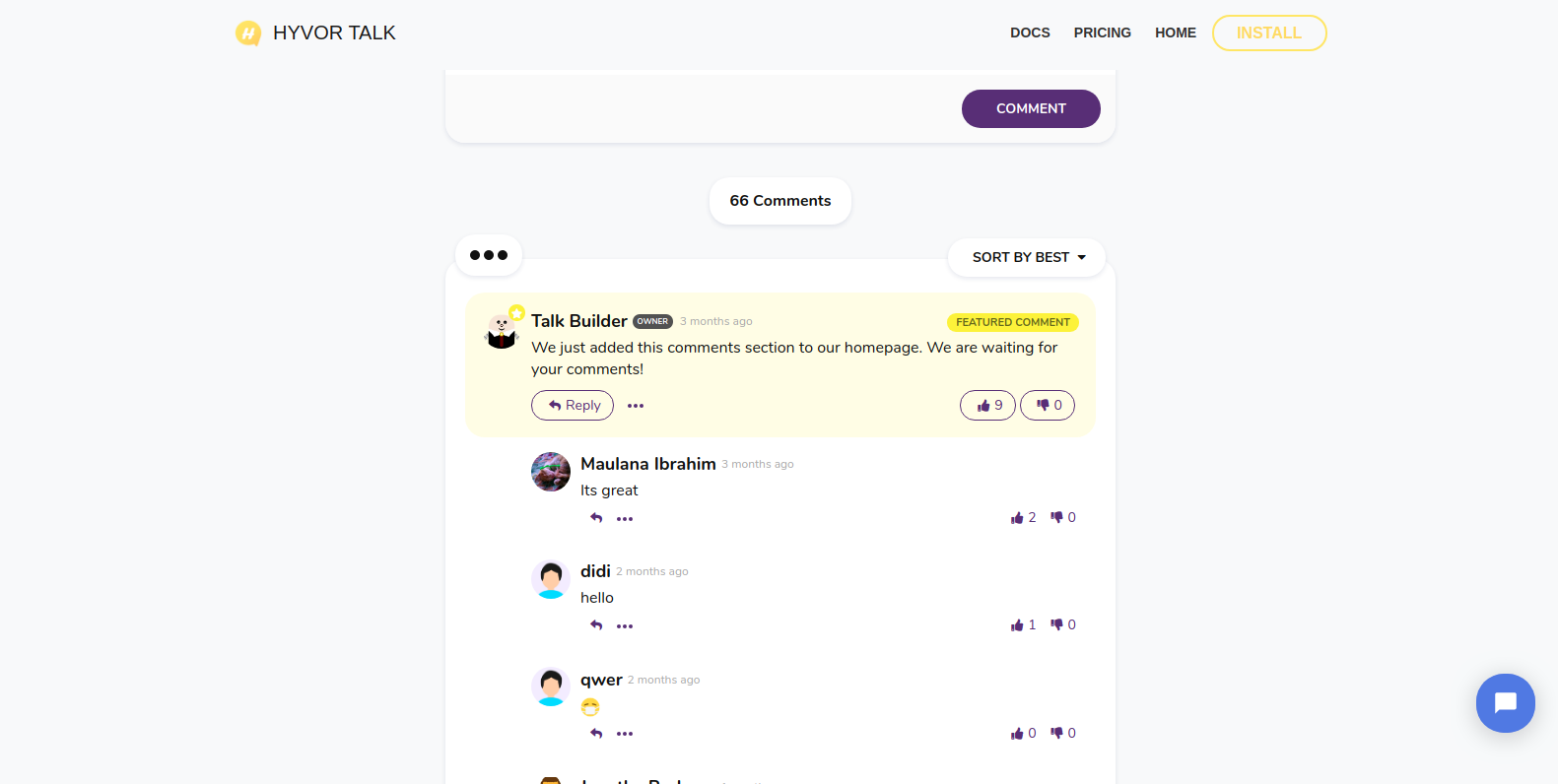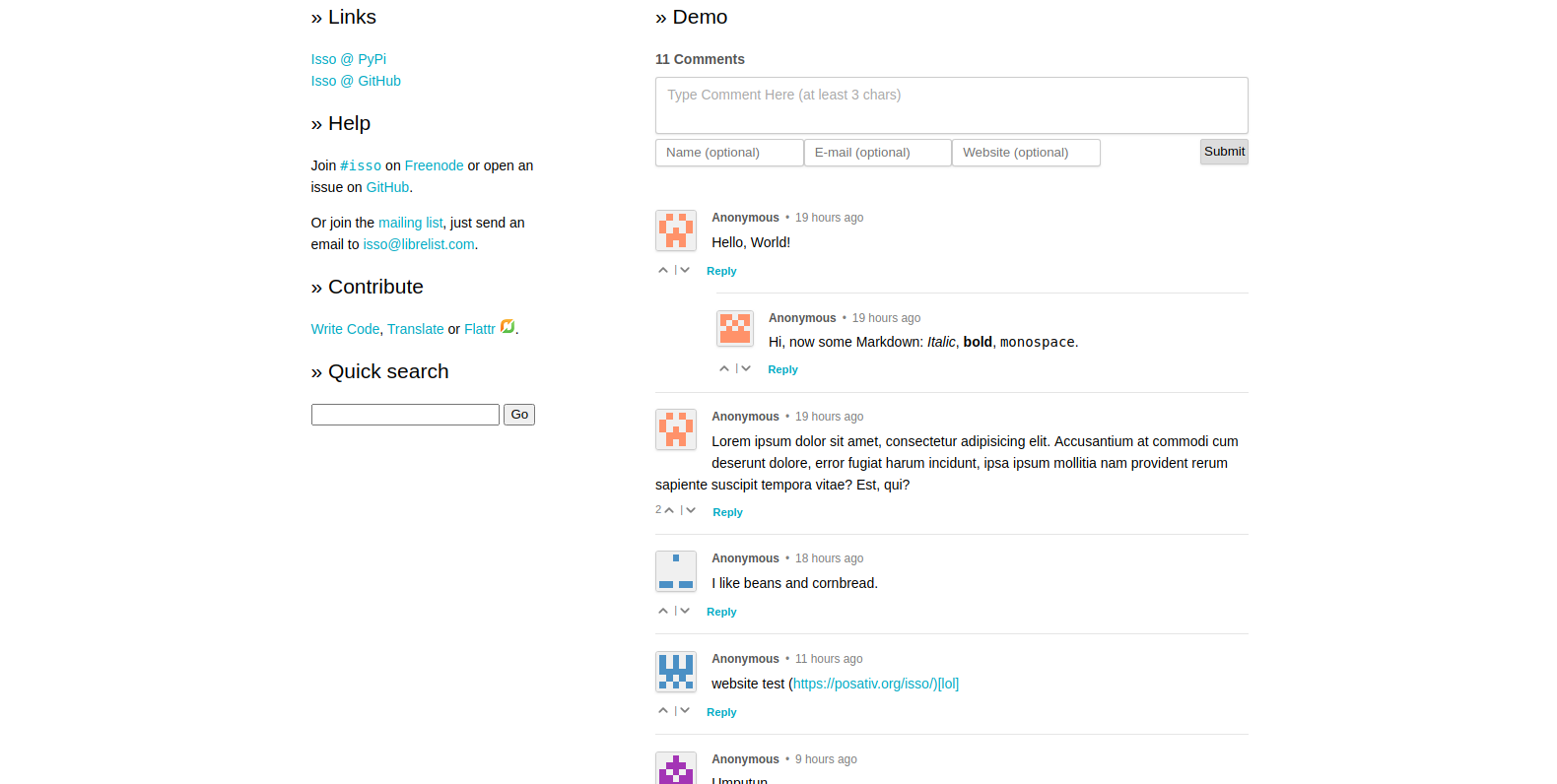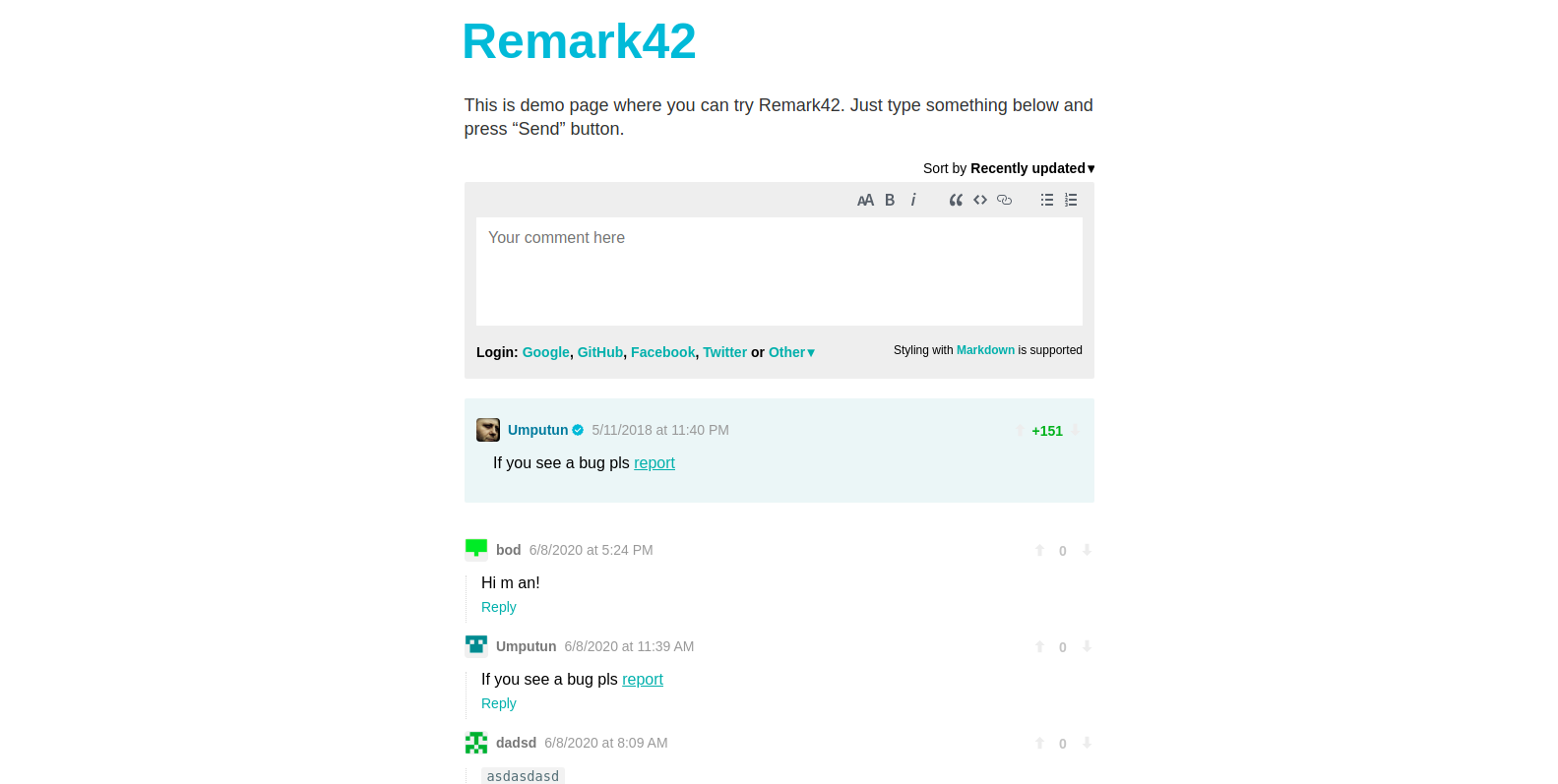
Top 6 Disqus alternatives for technical blogging
Disclaimer: This piece was written a while ago, and since, Commento’s development (it’s open-source) seems to have stagnated. Personally, I’ve moved to Hyvor Talk.
There are many reasons to include comment sections on your websites. They vary greatly - from higher user engagement to adding additional value to the presented content. Without a doubt, Disqus is one of if not the most popular service that provides you with such functionality for free.
But Disqus is not without its flaws. I’ve used it for over a year on this very blog and I’ve personally experienced a number of them:
- Slow and heavy - all of Disqus’ JS code weights well above 1MB, meaning very slow loading times and even potential slowdowns of the whole website. Not only it’s irritating for the user, but it also can affect your position in search ranking as Google does indeed look at your website’s performance.
- Obtrusive ads - unless you subscribe to one of the premium plans or run a non-commercial site, you’ll have to deal with Disqus ads. Sure, it’s natural that you have to pay for the service you use somehow, but these ads are very, very intrusive.
- Tracking - apart from the ads, when using Disqus, you pay mainly with your and your users’ data. And the fact that, in 2017, Disqus was acquired by Zeta Global - “data-powered marketing technology company” - only further backs that claim.
So, with all these downsides, why would anyone use Disqus in the first place? Where do these millions of users and comments come from? Definitely simplicity and ease-of-use have something to do with it. Especially for beginning bloggers, Disqus provides some of the most advanced toolings for free - at least at first glance.
Recently, I decided to finally get rid of Disqus from this blog. Not only was it slowing down my website dramatically, but it also came with lots of tracking code. So, I switched. And in this blog post, I want to help you do the same thing, with what in my opinion are 6 best Disqus alternatives.
Hyvor Talk

Hyvor Talk is very similar to Disqus in a way that it’s a fully-managed, subscription-based platform. However, it strikingly differs from Disqus though its approach to privacy and ads. Hyvor Talks respects your and your users’ privacy - it doesn’t use any tracking code nor ads.
Hyvor Talk stands out from the competition through its modern design, vast customization capabilities, and different commenting features like reactions, voting, mentioning, realtime updates, and so on. Overall, I’d say it’s a pretty nice alternative for Disqus - especially for beginners. The fact that you don’t need to set up anything yourself and get all that for a reasonable price makes Hyvor Talk a very compelling option.
Talkyard

Rather than a simple comment section, Talkyard is a full-blown discussion platform. Not only you get a comment section embed for your website, but also a full-blown standalone forum and even a basic chat platform.
No matter what form of Talkyard you use, you can always be sure you’ll have a ton of features at your disposal. From full forum management tools, to comment reactions, threads, reporting, etc.
But even with all that, arguably the best thing about Talkyard is the fact that it gives you an option to choose. To choose between using it as a managed service or entirely on your own. That’s because Talkyard is open-source, which also means no ads, tracking, and full data transparency out-of-the-box.
Isso

Going back from managed solutions and forum management software a bit, we stumble upon Isso - a rather simple, self-hosted commenting system.
Isso is open-source and comes with a basic set of features. Markdown support, threads, voting, Disqus and Wordpress comment import, and a very lightweight embed (12KB min+gzip) are pretty much all of its features. If simplicity and easy setup are all that matter to you, this is the way to go.
Remark42

Remark42 is yet another open-source self-hosted-only comment engine. It provides a broad set of features ranging from comment administration tools, voting system, social 3rd-party services login, and Markdown support to simply nice UI.
Although a bit harder to set up than, say, Isso, it’s still pretty easy to get it up and running thanks to Docker or pre-compiled executables. Remark42 is a generally good software intended for those who’d like to run a full-featured comment section of their own, without depending on any 3rd-party service.
Utterances

Now, Utterances is a very unique piece of software. It’s free without any ads, pretty privacy-focused, and very easy to set up. How’s that possible? It’s all thanks to Utterances being based on GitHub issues. All it is is essentially a very lightweight widget that queries and displays comments under the specified GitHub issue in a specific repository. In this way, you can have an easily-digestible public repo just to handle your comments.
Such an approach has several advantages. The easy setup is certainly the biggest one of them. You don’t have to worry about the installation progress, nor the comments’ data itself. It also results in a pretty nice-looking and functional UI with all the features known from standard GitHub issues like Markdown support, reactions, and mentions, plus an easily customizable theming system.
So, if you expect most of your audience to have a GitHub account (like a programming blog or something), which is required to comment in Utterances chat, then this piece of software should satisfy most of your needs. That is if you’re willing to entrust GitHub (and thus Microsoft) with all the related data.
Commento platform

Lastly, we’ve got Commento - a lightweight, privacy-focused commenting platform. This is the platform that now powers this blog’s comment, so if you want - feel free to test it down below!
Now, why did I go with Commento? Probably the most important reason was how lightweight it is. At about 11KB (min + gzip) it’s one of the lightest and yet quite feature-full platforms of its kind. Moderation tools, threads, voting system, and 3rd-party login are all included, which, arguably, is enough even for the most complex websites.
From the administration side, Commento comes with a very simple when compared to e.g. Hyvor Talk or Disqus dashboard. However it, in combination with controls embedded inside the comment section itself serves its purpose. Importing comments from Disqus, automated spam detection, and basic analytics - everything’s present.
Commento puts great pressure on privacy. Thus, it’s not surprising that it’s open-source and can be self-hosted. What’s more, if you want to get up and running without much effort, you can go with the available managed option - subscription starts from $5 and is based on the pay-what-you-want model - no matter the size or number of visits your website receives.
Bottom line
As you can see, there’re plenty of more privacy-friendly Disqus alternatives. Sometimes, you don’t even have to pay anything to get a surprisingly good experience. It’s a win-win situation - you’ve got a faster website, and your users got their privacy back.
With all that said, these were just my 6 picks. Surely, there are a lot more high-quality services that I haven’t listed here or don’t even know about. So, if you’re willing to share some of the other options known to you, definitely go and put that Commento section to good use. ;)
Thanks for reading this piece. For more up-to-date content on software, privacy, and web development, follow me on Twitter, Facebook, or through my newsletter below. Happy commenting!
If you need
Custom Web App
I can help you get your next project, from idea to reality.